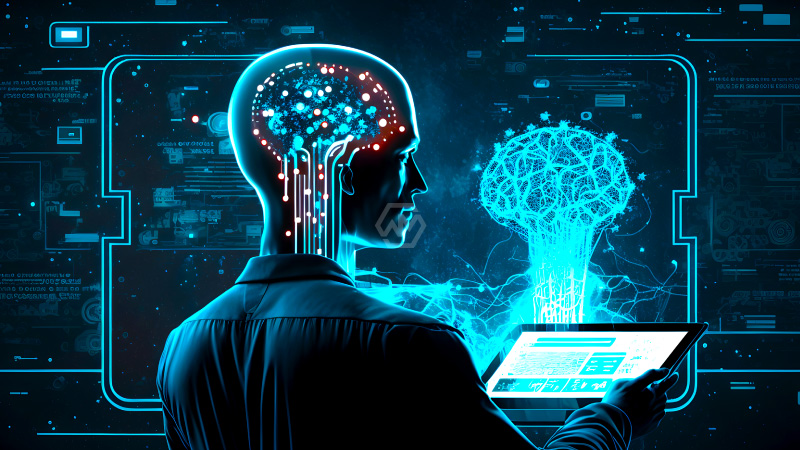- Consumer technology is seeing a significant advancement in AI.
- AI to bring non-playing characters (NPCs) to life in immersive gaming.
- Another area where AI is taking off is in product innovation.
Consumer technology is seeing a significant advancement in AI, with numerous tools and applications being created to meet different use cases.
Some notable instances include HereAfter, an AI program for constructing digital profiles of long-lost relatives, Replika, an app for making avatars of ideal romantic partners, and Samsung’s AI voice cloning and transcription tool.
Artificial intelligence
In addition, four areas of consumer technology and marketing are being progressively affected by AI: immersive gaming, product innovation, virtual influencer ecosystems, and the development of the virtual influencer ecosystem.
Gamers may tailor the entire gaming experience, from plot to climax, by using generative AI to bring non-playing characters (NPCs) to life in immersive gaming. This sparked the creation of virtual ordering agents that can accept orders in a variety of languages and let users design realistic-looking rooms.
Another area where AI is taking off is in product innovation. Hell Energy expertly crafted the design, composition, taste assessment, and marketing components for the first energy drink in the world that was powered solely by AI.
Leading retail and customer-focused firms may get sharper insights and launch products faster by utilizing AI and Large Language Models (LLMs) in product innovation.
As a result of Campbell, the world’s largest soup company, utilizing AI to identify consumers’ preferences for “spice” in their goods, new hot items like Chunky Ghost Pepper Chicken Noodle Soup have been introduced. In its studies into intestinal health, Unilever is also using LLM-guided AI systems.
Virtual influencer ecosystems, which are fueled by end-user interactions and content creation driven by people, have swept China and Southeast Asia. According to a 2021 Economist story, only in China did virtual influencers facilitate close to $16 billion in sales.
Over 20,000 people at Alibaba contributed to the creation of the virtual influencer Noah, who received over 65 million views on the Chinese social media site Weibo. AI is assisting virtual influencers in finding, producing, and engaging with consumers around the clock.
However, not everything in the realm of consumer tech AI is perfect. Recently, an AI-generated audio clip of a father’s daughter claiming to have been kidnapped and to have been demanded for ransom was played to him in the United States. American technology industry leaders are actively requesting government regulation as they grow more worried about the rate of progress.
Additionally, a study from Stanford University and UC Berkeley asserts that GPT 4 is less intelligent than earlier versions. In conclusion, while AI has enormous prospects for consumer technology, it also has several drawbacks.



